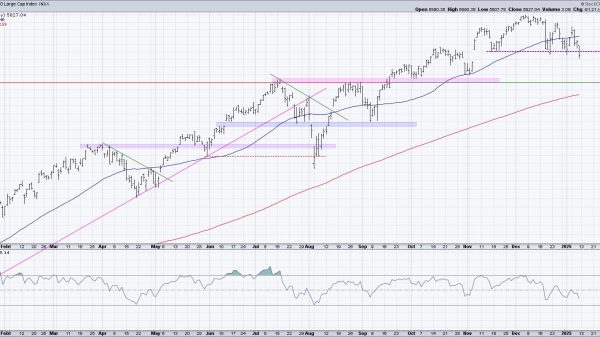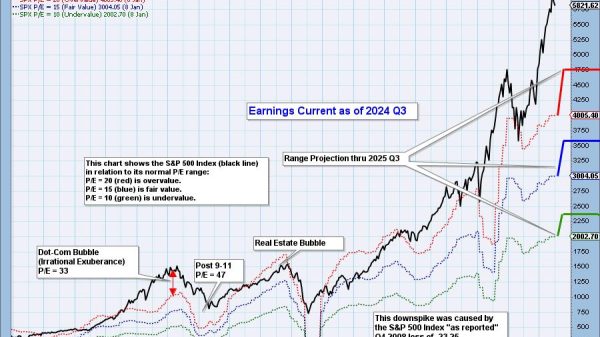Slot games are one of the most popular forms of online gambling, but many people don’t realise the complex math that goes into their design.
This article will take a deep dive into the mechanics and math behind slot games, including concepts, such as multiple pay lines, pay anywhere, cascading reels, wilds, scatters, feature buys, level up, randomizers, bonus spins, megaways, and progressive jackpot slots.
Slot game formats
Since its introduction in the closing years of the 1800s, slot games have developed beyond the classic three-reel matching mechanic. This is true for both physical and online slots, enabling slots to remain enjoyable in the gaming scene by offering more ways to win. Below are some prevalent slot game formats aside from classic slots.
Pay lines
Whereas classic slots require similar patterns to line up in the middle row, pay lines do so in different directions. Whether the patterns form up diagonally or in a zig-zag, pay lines allow players to earn winnings in more ways as long as they bet on the winning lines.
Progressive
Also called progressive jackpot slots, this slot game features a prize pool that increases every round until a player hits the jackpot. The increase depends on how much the game takes from a player’s wager, usually the maximum amount. They’re a common sight in brick-and-mortar casinos as a line of identical slot machines sharing a common prize pool.
Cascading reels
This slot game is more akin to Tetris (or, for more recent examples, Candy Crush) but fun all the same. When it registers a winning combination, it disappears and is replaced with a fresh batch of patterns. Cascading reels typically have more pay lines than conventional pay line slots, provided that the patterns are interconnected.
Pay anywhere
The pay-anywhere mechanic doesn’t need patterns to be interconnected or run along a certain pay line. Players can earn winnings in a pay-anywhere slot by having the required number of patterns appear on the board.
Wilds and scatters
Wilds and scatters are unique patterns that appear in most slot games. Their function depends on the slot game, but in most cases, scatters trigger bonus conditions (e.g., free spins), while wilds are similar to jokers in a pack of cards due to their ability to assume any pattern.
Feature buys
Players can participate in the bonus round of a slot game for a premium instead of getting the required patterns. It’s essentially buying your way into growing your winnings more quickly than waiting for the patterns to appear.
Level up
As the term implies, level-up slot games feature a progression system where certain features and patterns become more valuable the longer the game progresses. As a result, players can gain increased chances of getting wilds and scatters or see patterns rise in value.
Reel modifiers
Reel modifiers were made famous by the Megaways line of slot games. Whereas regular slots have a fixed number of possible combinations, reel modifiers vastly increase that by generating a random number of patterns with each spin. These games are often marketed with the slogan: ‘Up to 117,649 ways to win,’ but the figure can be up to nearly 600,000.
Every slot game, physical or online, has its own unique mechanisms based on complex math. A casual player may not pay attention to such intricate details, but knowing the numbers can go a long way in playing smart.
Not genuinely random
Contrary to popular belief, slot games aren’t entirely random because of their computer-based programming. Getting a computer, which follows instructions based on its code, to generate a result by pure chance is difficult, if not impossible.
The closest thing to generating randomness with computers is an algorithm known as a pseudo-random number generator (PRNG). While the number of possible combinations it can generate isn’t infinite, repeating one can take so long that a player usually doesn’t notice. Even if a player is aware of this, a PRNG generates numbers too quickly for them to become familiar enough.
Regardless, the math behind slot games exists, namely the probability of winning. A traditional 3-reel slot machine with 6 patterns can generate 216 combinations, whereas the same slot machine with 20 patterns can generate over 8,000. Meanwhile, as mentioned earlier, Megaways slot games have over 100,000 winning combinations.
But while winning combinations is one thing, the likelihood of hitting one or several is another. In a traditional 3-reel 6-pattern slot game with a single pay line, the probability is 1 in 216 or 0.46%. For the same game with 20 patterns, the probability is much lower at 0.0125%.
There are a variety of features that drastically affect the winning percentage of slot games as well as the total number of outcomes. While traditional slot games include a set amount of pay lines, game formats like Megaways slots modify reelsto drastically increase the number of ways to win into the hundreds of thousands.
One example is Holy Diver, marketed as having nearly 600,000 pay lines (upon reaching level three in the game), as Megaways slots do away with fixed pay lines altogether. As long as the correct symbols appear in each reel, players are guaranteed payouts depending on their stakes. However, the PRNG algorithm means that the probability of winning remains extremely low.
Return-to-player (RTP)
Given such odds, it’s understandable that some people may feel antagonistic toward slot games. According to Investopedia, not only do most of these games have a low probability, but they also have a high house edge (as much as 50%). The more a player plays, the more likely they’ll walk out of the casino with less money than when they entered.
In order to communicate fairness, slot games usually include an RTP percentage within the game’s interface. Return to Player (RTP) is a theoretical ratio in which funds are returned to players during gameplay, with a slot house edge given to a casino for profit.
The Gambling Commission explains how RTP rates are calculated: dividing the total payout distributed to players by the total turnover in a number of games (usually 10,000 or 100,000). For example, a slot game made GBP£1.2 million and paid players GBP£1 million, resulting in an RTP rate of 83.3%.
One common misconception is that RTP is similar to return on investment, meaning a player expects to make a fraction of every pound wagered. RTP is another way to see how easily a player can win something, regardless of the amount. Slot games advertise their RTP rates to entice people to play, as large figures are more appealing than small ones.
On top of that, showing the game’s RTP is required under Section 240 of the Gambling Act 2005. Currently, there’s no mandated minimum rate in the U.K.
However, the advertised RTP isn’t always the same as the actual RTP because of volatility, especially in the first 300,000 games. Volatility refers to the risk of loss in a wager relative to how often a player wins and how much the payout is per win.
Unlike RTP, volatility is measured as low, medium, or high.
Low volatility means players win more often, but the payouts are generally small at 250 to 500 times the wagered amount.
Medium volatility offers the best possible balance of win frequency and payout, not to mention more bonus features.
High volatility doesn’t pay out as often, but it’s usually between 3,000 and 10,000 times the wagered amount when it does.
Because of volatility, the Gambling Commission tolerates fluctuations in published RTP rates to a certain extent. The more games played, the less the fluctuation. For example, a slot game with an advertised RTP of 91.68% can register an actual RTP between 89.93% and 93.43% (deviation between 1.0976 and 4.90862).
It’s impossible to determine a slot game’s volatility at first glance, as most casinos don’t reveal such figures. The RTP is the next best thing when assessing a slot game’s risk of loss. Otherwise, players must spin at least 5,000 times to get a rough idea, namely how often bonuses appear. In this case, it pays to take advantage of demo versions of slot games to test them out.
Manipulating slots
Casinos are some of the most heavily guarded facilities for a good reason. Aside from handling millions in cash to complete payouts, they’re on the lookout for people attempting to get one up on them. Security measures on the gambling floor include an intricate system of surveillance equipment, security staff, and the dealers themselves.
Not only is cheating in gambling not unheard of, but it has happened before, from the Tranby Croft Affair to Phil Ivey’s controversial GBP£7.7 million win in a London casino. Then again, most of these cases occurred in baccarat. Can slot games be just as vulnerable?
Unsurprisingly, yes. There have been cases of people manipulating the machinery or its code for the slots to spin in their favour. As with any program made by human hands, slot games aren’t safe from such practices. Sometimes, there’s no need for sophisticated coding know-how, as is the case for folding bills to fool the bill validator.
Times have changed, however. The digitisation of today’s slot machines has rendered most of the tried-and-true tricks ineffective. For instance, piano wire can’t be used on slots with digital reels because it’s the code managing the reels and not a physical part.
As for the source code used in slot games, it’s still prone to hacking. Some players employ slot RNG timing to calculate the precise time to stop the reels (often with a special app). However, experts believe hacking slot games is impractical due to the PRNG algorithm and the variations of the source code among developers.
In developing the slot game’s source code (or a program, in general), running the same seed number each spin is begging to be exploited. This issue removes the randomness in the PRNG, allowing exploiters to take advantage of its predictability. Slot games avoid this by ‘reseeding’ or changing the input to a different value from the original one in the sequence.
Developers don’t disclose the seed number for security (and apparent) reasons. The only person with access to the information is the one who inputted this line of code. That isn’t to say that they won’t attempt to use it to strike rich in the slots, but that’s a different matter entirely.
As for variations, the tech stack developers use is relatively tall, particularly the game engines and programming languages. Some developers create their engines in-house, like Megaways (developed by Australia-based Big Time Gaming), while others adopt third-party ones like Unity. Potential hackers would have to learn the many variations in each developer’s tech stack.
Raised brows on fairness
Not all are convinced about gambling’s interest in ensuring a fair and fun game for everyone. A justification some cheaters use is that the casinos themselves are engaged in cheating as much, and they’re only fighting fire with fire. The same applies to online casino games.
Industry experts argue that cheating won’t make financial sense for the casino (assuming it’s licenced). The industry itself is heavily regulated, considering the existence of the Gambling Commission, and the house edge ensures that casinos make a profit either way. Moreover, a casino caught cheating can see its revenue and reputation degrade quickly, if not overnight.
Apart from the Gambling Commission, independent watchdogs exist. One is the London-based eCommerce Online Gaming Regulation and Assurance (eCOGRA), whose primary role includes testing and certifying online gaming software. A seal of approval from such a body is no guarantee, but it’s more reassuring than a lack thereof.
For online slot game operators, cyber security is a must due to their nature of handling personal data. A look into their Terms and Conditions page explains their approach to protecting such data and ensuring a worry-free gaming experience. Another reassuring sight is the plethora of banking options the operator accepts to distribute winnings.
Conclusion
Slot games may seem simple on the surface, but there is a lot of complex math that goes into their design. Understanding the mechanisms used in slot games and the math behind them can help players make more informed decisions about which games to play. As technology continues to evolve, we can expect slot games to become even more complex and exciting in the future.
Read more:
The Complex Maths Behind Slot Games























